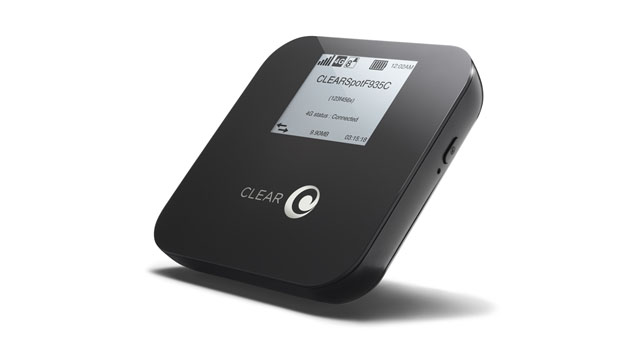
WiMax operator Clearwire may not be getting into the handset business, but it is still hoping to appeal to consumers with mobile hotspots, announcing today the new Clear Spot 4G – Apollo will be available in late July. The hotspot will enable up to eight Wi-Fi devices—notebooks, netbooks, smartphones, tablets, cameras, game devices, you name it—to share a 4G WiMax mobile broadband connection. The Clear Spot 4G – Apollo will be priced at $99, while WiMax service plans start at $35 per month.
“With our new Clear Spot 4G – Apollo, surfing, streaming, gaming and entertaining are all possible this summer in over 70 markets coast to coast,” said Clearwire senior VP of marketing and products Dow Draper, in a statement. “This device is the ultimate Internet surfing machine and offers today’s mobile user, and the millions of Wi-Fi products in use across the country, even greater access to Clear’s super-fast and affordable 4G Internet service.”
Manufactured by Gemtek, the hotspot is small enough to be hauled along with other portable gear: just 3.4-inches square, weighing less than five ounces, and capable of operating on a rechargeable battery for up to six hours. However, if you’re outside Clearwire’s WiMax coverage areas, the Apollo stops working: it doesn’t drop back to 3G service from Sprint if WiMax isn’t available. The Apollo is strictly the WiMax-way or no way.
Clearwire’s 4G coverage starts at $35 per month, with unlimited mobile plans starting at $45 per month—folks who want to bundle in voice service can shop plans starting at $55 per month. Clearwire will also be offering the hotspot on lease for $6 a month, rather than the $99 up-front price.
Clearwire says its coverage area now covers about 130 million Americans—although the company is currently the target of at least one suit claiming the company has sold services in areas it knew it couldn’t provide service.


